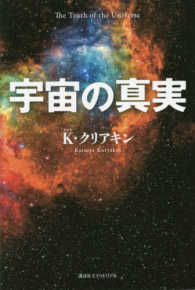- ホーム
- > 洋書
- > 英文書
- > Politics / International Relations
Full Description
How do powerful rural sectors turn wealth into political clout—and when do they fail? This book offers a comparative account of business power that speaks to political scientists well beyond agricultural policy. Tracing Argentina and Brazil during the 2000s commodity boom, it shows how economic geography, federal institutions, and party systems combine to create (or block) "institutionalized political resources": durable legislative footholds that let elites shape national policy even under redistributive governments. Using the soy sector as a strategic case, the book explains why Argentina imposed and sustained a 35% export tax, while in Brazil agrarian interests repeatedly vetoed or watered down regulation. The analysis blends multi-year fieldwork with original legislative and production data. Linking business power, territorial politics, and comparative institutions, the book qualifies resource-curse arguments by showing how commodity prices shocks' impact are decisively mediated by domestic political dynamics.
Contents
Chapter 1: The Politics of Booming Times: External Shocks and Mediating Domestic Political Dynamics in Latin America Export Agriculture.- Chapter 2: Geography, Federalism and Partisan Competition as Determinants of Agricultural Policy Choices in Argentina and Brazil.- Chapter 3: The Agricultural Sector's Political Muscle in Brazil: Peripheral Provinces, Partisan Fragmentation and Sectoral Interest Group's Cohesion.- Chapter 4: The Agricultural Sector's Political Resources in Argentina: Central Provinces, Partisan Discipline and Sectoral Interest Groups' Fragmentation.- Chapter 5: Agricultural Power in Motion: Negotiating Tax and Regulatory Policies in Argentina and Brazil.- Chapter 6: Conclusions.






